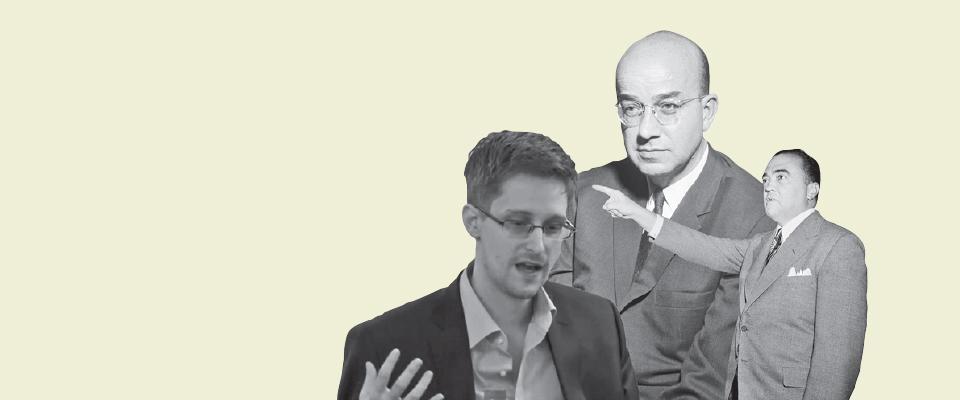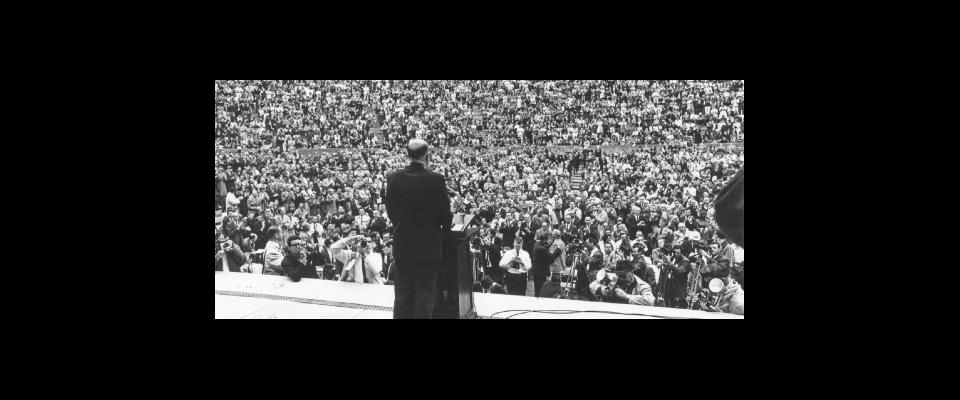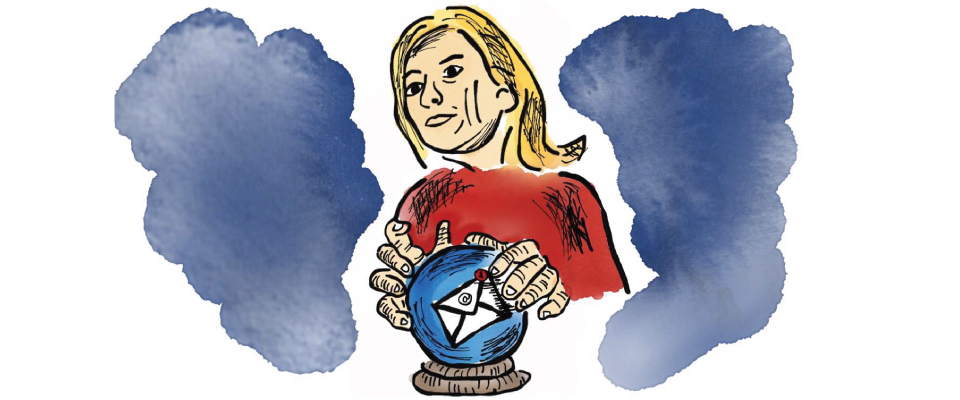Long before Edward Snowden’s disclosures about massive National Security Agency surveillance programs like Prism and Bullrun, J. Edgar Hoover’s FBI cast a wide intelligence net over the nation, especially public institutions, including the University of California.
Then, as now, the nation entrusted its intelligence agencies with great power and secrecy to protect it from foreign threats. During the Cold War, it was the Soviet Union. Today it is al-Qaeda terrorists.
Although much about the NSA’s activities remains unknown, declassified FBI records show that Hoover’s bureau not only collected data in the name of national security, but then misused it to mount a series of unlawful operations at Berkeley. And although surveillance technology has evolved dramatically in the years since, it remains essentially the most recent iteration of Hoover’s methods: collecting voluminous data, making lists, and keeping tabs.
FBI records on the University of California were released to me under the Freedom of Information Act for my book, Subversives: The FBI’s War on Student Radicals, and Reagan’s Rise to Power. The records show the bureau first focused on Berkeley during World War II, after FBI wiretaps on the Communist Party’s Alameda County office overheard a Soviet plot to use party members to steal secrets from University-run nuclear labs. After the war, however, the bureau veered from this national security mission and instead focused on students, professors, and UC officials with whose views they disagreed.
In the early 1950s, the FBI ran an unauthorized operation called the Responsibilities Program that was intended to secretly remove politically suspect employees from state and local agencies and schools. It was ostensibly aimed at members of the Communist Party, whom bureau officials suspected were (according to one document) infiltrating the education field to “insidiously instill into the minds of children the Communist party line.”
Under the four-year program, the FBI covertly gave the governors of nearly every state verbal reports on the political backgrounds of some 908 state employees. Although Congress later found the bureau’s evidence questionable, more than 500 people were fired, quit, or otherwise left their jobs. In California, agents passed allegations about 206 employees to Governor Earl Warren. At least 15 were on the UC staff. They neither knew the FBI was involved, nor had a chance to confront their accusers.
In 1959, Hoover became furious that the University had included on its entrance examination an optional essay question: “What are the dangers to a democracy of a national police organization, like the FBI, which operates secretly and is unresponsive to public criticism?” He ordered agents to search FBI files on all 6,000 UC employees. The resulting report on UC’s “political complexion” said 141 professors had committed misdeeds such as “writing a play that glorified the Chinese Communist Army”; 40 had protested the state’s loyalty oath; and 22 had been involved in “illicit love affairs, homosexuality, sexual perversion, excessive drinking, or other instances of conduct reflecting mental instability.”
More alarming, the 1960 report said that 72 professors, students, and employees in the entire UC system were on the bureau’s Security Index, a list of people whom the FBI considered potentially dangerous to national security in the event of a crisis and would detain indefinitely without judicial warrant. Hoover had begun the program without authorization, Congress later found, and he disobeyed an Attorney General’s order to destroy the “impractical, unwise, and dangerous” list. By 1965, amid growing campus protests over civil rights, free speech, and the Vietnam War, the FBI expanded that index and the Reserve Index (a list of professors, lawyers, doctors, and others deemed not quite as dangerous as those on the Security Index) to include 95 people at Berkeley alone.
The bureau not only collected intelligence, but abused it. Congress found in the mid-1970s that the FBI used the threat of communist infiltration as a pretext to harass people engaged in legitimate dissent. And at UC, a federal appeals court later found in one of my FOIA cases, records show the bureau unlawfully “waged a concerted effort” to get President Clark Kerr fired because Hoover disagreed with Kerr’s handling of University affairs. In addition, the FBI investigated the 1964 Free Speech Movement without a legitimate law-enforcement purpose, and kept FSM leader Mario Savio under surveillance long after the protests ended, because of Savio’s “contemptuous attitude.”
Former NSA contractor Snowden recently told The New York Times, “So long as there’s broad support amongst a people, it can be argued there’s a level of legitimacy even to the most invasive and morally wrong program, as it was an informed and willing decision.” He added, “However, programs that are implemented in secret, out of public oversight, lack that legitimacy, and that’s a problem.”
And, as the FBI records on UC show, such programs can go terribly awry.





















